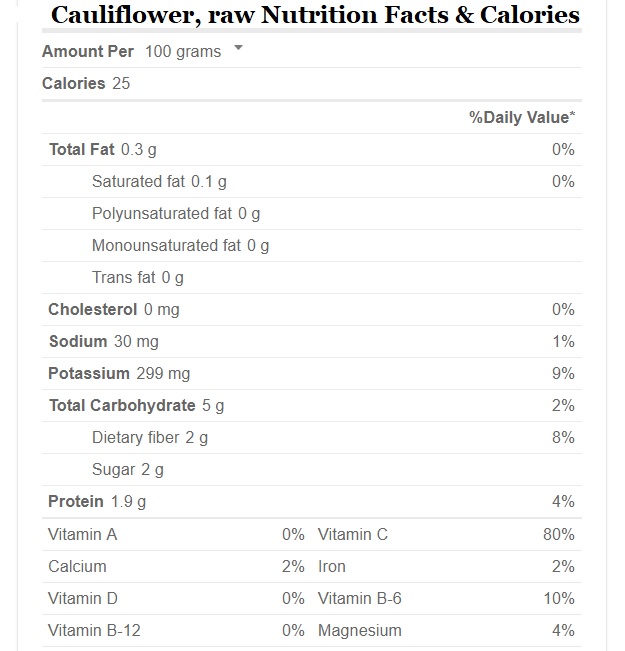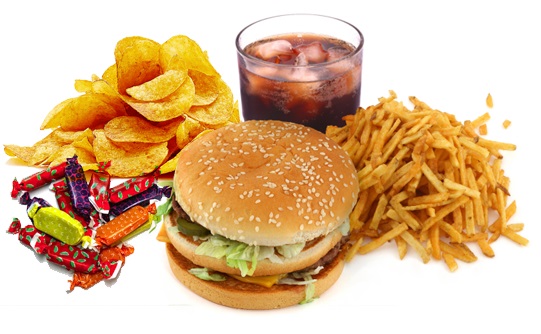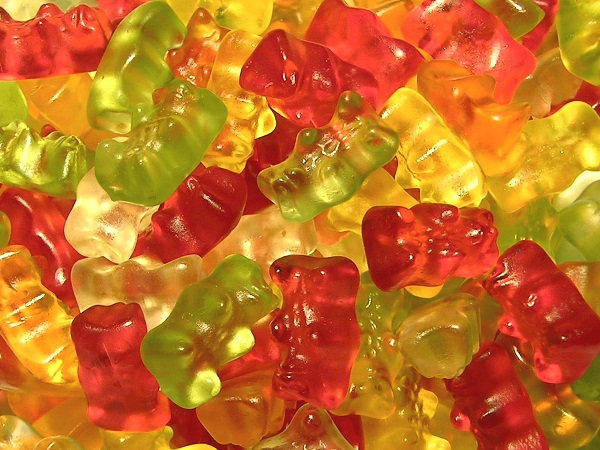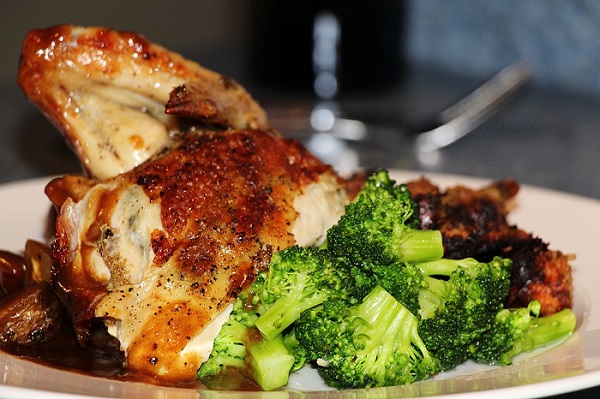Obesity puts your life at risk for a variety of otherwise avoidable medical conditions that could affect your health now and in the future. Most common medical problems, due to obesity and overweight, include type 2 diabetes, high blood pressure, and high cholesterol. Having a healthy body weight means rationalizing your daily life choices for what you eat and exercise.

In case you’ve already tried workouts and avoiding high-calorie meals, it would virtually seem impossible to lose weight naturally. Although lifestyle changes, such as eating healthier, regular exercise, etc. are always recommended, understanding your food and calorie intakes would tremendously help manage your overall health.
I used to be about 90 kg when I moved to China (in late 2017), the same continued for more than a year. However, now I am 72 kg. I lost more than 15 kg weights naturally in 2019 (primarily between Feb and July). I didn’t go to the gym, no running, no yoga and definitely no swimming! So how did it all happen?

Well, I heavily managed my food (and so, the energy) intakes and regularly started walking about 5-6 km/day. That’s all I did! Now I’m pretty much in a better shape. Life indeed looks great. When I go for a walk, the walking speed is also somehow faster as it feels a new level of energy altogether. Any side effects? Oh yes! I had to throw away my old clothes and buy the new ones. 🙂

So, in this post, let me share some simple tips to lose weight naturally. Here are my favorite top tips on how to lose weight and calories without too much of sweating.
- Level 1: Chinese Reading Books (Journey to the West Series, 600 characters)
- Level 2: Chinese Reading Books (Chinese History Series, 900 characters)
Science behind the weight loss
What’s the quantitative relation between the energy intake and body weight? In a layman’s term, the more calories you add, the more weight you are likely to gain. So, to lose weight, you’ll need to lose calories. How much? Well, the calories required would vary from person to person based on many criteria such as age, gender, pre-existing health conditions. However, a broadly accepted fact is-
3500 calories ~= 0.5 kg.
That is to say, if you create an energy deficit of ~3500 calories, you’ll be losing 0.5 kg (in order to lose 1 kg, you’ll need to create a deficit of ~7000 calories).
Sounds too much for your lifestyle? Let’s dig more!
What’s the Basic metabolic rate (BMR)?
Human needs some basic amount of energy daily to perform basic functions (such as breathing, blood-circulation, etc.) in order to sustain a living. The BMR is the number of sufficient calorie intake required (each day) for the essential life-sustaining activities.
In general, a person weighing ~80 kg would require ~1800 calories/day to sustain the basic life functions. That means, if you weigh 80 kg, and you keep lying on bed for 24 hours, you’d lose 1800 calories. Additionally, the more work you do (such as exercises), you would lose more calories. As an example, if you walk 6 km, you lose ~300 calories. So your per day energy requirement, to maintain the same body weight, is ~2100 (1800+300) calories.
The BMR varies from person to person. You can calculate your BMR online.

Further, if you BMR is 1800 calories, your per day energy requirement to maintain the same body weight is 1800 calories. If you add more calories, you’d gain weight. If you create an energy deficit, you’d lose weight. Simple science!
As a part of your weight management plan, you need to create a regular calorie deficit. You’d better eat less (such as 1200 calories) and regularly walk 8 km (400 calories) each day. Basically, you’d lose 1000 calories a day. In one week, you’d lose about 7000 calories, that’s about 1 kg/week and 3-4 kg/month. Pretty much doable with a healthy lifestyle choices!
- Level 3: Chinese Reading Books (Chinese Culture Series, 1000 characters)
- Level 4: Chinese Reading Books (Chinese Geography Series, over 1000 characters)
Diet management plan for weight loss
Obviously, a significant portion of your energy deficit would depend on your food intakes. Therefore, here are some tips for what to eat for a weight loss (and what not to eat). Let’s go through some basics!
Macronutrients
The food you eat has three macronutrients giving you precious energy: carbohydrates, protein and fats. Sure, these macronutrients are utmost important for a proper body functioning, and the body requires large amounts of them. All the three constituents must be obtained through diet; the body cannot produce macronutrients on its own. Do you know how much energy the carbohydrates, proteins and fats add to your body? I’d give you the numbers-
- 1 gram fat = 9 calories,
- 1 gram carbohydrates = 4 calories,
- 1 gram protein = 4 calories.

Carbohydrates
As stated, carbohydrates are one of the macronutrients, meaning they are one of the three main ways the body obtains energy, or calories. Why are they called carbohydrates? Because, at the chemical level, they contain carbon, hydrogen and oxygen.
The body breaks down or converts most carbohydrates (excluding fibers) into the sugar glucose. Glucose is absorbed into the bloodstream, and with the help of a hormone called insulin it is transported into the body cells where it could be used for energy.

Why carbohydrates (sugar) is a problem?
Well, because the body turns carbohydrates into glucose and glucose enters the blood stream almost immediately after you’ve finished eating them. No wonder, consuming a high-carb food would potentially make the blood sugar levels go high.
There is one more issue – did you notice not feeling satiated enough, despite eating a relatively higher amount of high-carb diet? As an example, since sugar is digested faster, you don’t feel satiated despite eating way too many droughts or cake slices. However, if you eat a high-fat food (with low-carbs), such as the oily food, you’ll feel satiated faster.
Why?
Do you know, out of the three macronutrients, which one is digested the fastest? Well, the carbs get digested the fastest, the proteins are the second on the list as the fat get digested the slowest. In other words, if you eat fat, it would stay in your tummy for a while, causing you feel satiated.

Since the carbs get digested the fastest, they enter your blood stream quickly and your blood sugar rises. This is a prime reason behind diabetes – the consumption of too much of sugary food. In diabetes, your blood is way too sweet!
Not to mention, sugar is addictive. You keep eating them, again and again, over and over! So, the very simple key to the weight loss is opting for a low-carb and high-fat diet (subject to your daily calorie needs).
Sometime back, I was having a discussion with one of my friends and he asked, “if sugar is a problem, why the markets are flooded with the sugary products”? I suggested him a couple of alternate questions-
- Why the markets are full of cigarettes?
- Why the markets are full of alcoholic beverages?
To think more critically, why would human consume cigarettes or alcohols despite knowing they are harmful to the health? Well, that would be an interesting topic for another blog-post. 🙂
For now, let’s continue the weight-loss discussion.

What to Not Eat for weight
You should stickily control your sugar intakes. Here is a list of food, the carbohydrates powerhouse, worth stopping in entirety-
- Bread (about 50% carbs)
- Cookies/biscuits (50-70% cabs)
- Potato
- Yogurts
- Rice (30%)
- Wheat (70%)
- Dry fruits
- Soft drinks (full of artificial sugar)
- Juices
- Alcohol
- Pizza
- Noodles
- Spaghetti
You could go on expanding the list.
In many Asian countries, such as India and China, wheat- and rice-products are part of a staple diet. Although both have carbs (and hence add sugar to blood), wheat-products are nearly twice as much dangerous due a heavy concentration of carbohydrates.

What to eat
- Green vegetables (such as cauliflower, broccoli, and spinach) – ear as much as you can.
- Meat, preferably white meat (chicken, and fish)
- Olive oil
- Butter
- Egg whites
Eat more fiber
The fiber is a type of carbohydrate that our body can’t digest. That is to say, most carbohydrates are converted into sugar molecules; fiber is never broken down into sugar molecules. As such, fiber leaves the body undigested. In addition, fiber helps regulate the absorption of sugar in the bloodstream apart from controlling the hunger. As such, we need about 20-30 grams of fiber daily for maintaining a good health.
How about the fruits?
Well, the fruits are sweet because they do contain sugar. A 100g of mango would contain ~15g carbs. However, the sugar in fruit is natural sugar (compared to artificial sugar found in soft drinks). Also, food provide essential vitamins, fiber, minerals, etc. Obviously, mango could be preferred over cakes and chocolates. However, in a nutshell, you should count the calories. That is to say, maintain a consistent calorie deficit to lose weight naturally.
Check the nutrients label in food
Do you regularly check the nutrient labels on the food-products at supermarkets? The labels are provided for a reason, right? Next time when you go to a supermarket, check out the labels carefully. Don’t buy high-carb food. Some of the products, such as soft drinks, might label zero carbs, but they are nevertheless sweet. How? Well, soft drinks contain artificial sweeteners that cause numerous health issues.
Overall, it seems that a high-fat (and low-carb) meal plan is more effective for losing weight than a low-fat (high-carb) one. The reason being that the many low low-fat foods have simply too much of carb (to name a few: chocolates, dry fruits, breads, wheat-products). Moreover, sugar is addictive, you often end up eating too much of them.
To sum up, in order to lose 1 kg weight naturally, you have to create a calorie deficit of ~7000 calories. Controlling your food intake is totally in your own hands. Eat green vegetables and say goodbye to the freaking SUGAR! Go out regularly and walk at least about 6 km/day. You’ll see the change soon. In fact, if you are able to lose about 2 kg/month naturally, that itself is an incredible achievement
How is your experience of losing weight naturally? Do let me know in the comments!
That’s all in this post about How Did I Lost 15KG Weight Naturally. If you have any question about weight-loss, traveling, living or working in China, do let me know in the comments! Feel free to post in our forum so that others could also contribute and learn. For regular updates like us on Facebook, or follow on Twitter!
If you find the write-ups useful, don’t forget to buy me a beer!
Wish you loads of health, happiness and prosperity!
Cheers!
Last updated: Saturday, June 6, 2020
Very nicely written and informative.
Thank you!
Thanks, very informative.
You are welcome. 🙂
Thanks for this very informative blog!!I have previously heard that there are many opportunities for walking in China. Apparently people walk everywhere compared to the western world where amenities are spaced out via freeways and highways and therefore requires a mode of transport other than the legs….
Yes, China is a great place. Thanks for stopping by. 🙂
Hello. I eat rice daily as it is our staple food. Please tell me how I can lose weight even after eating rice or how much rice I should eat to lose weight.